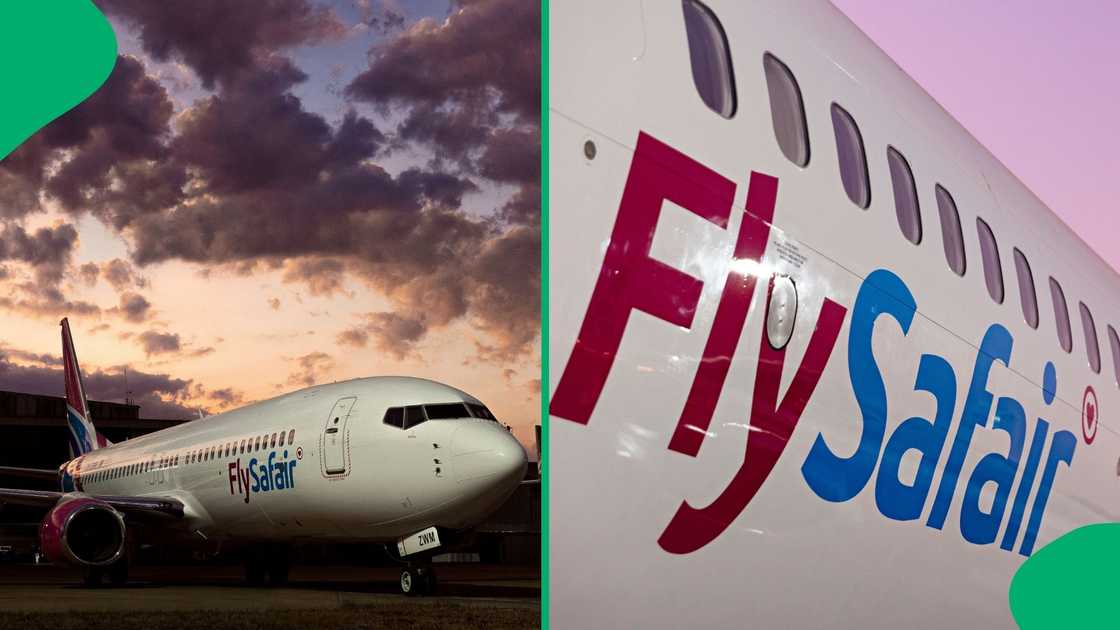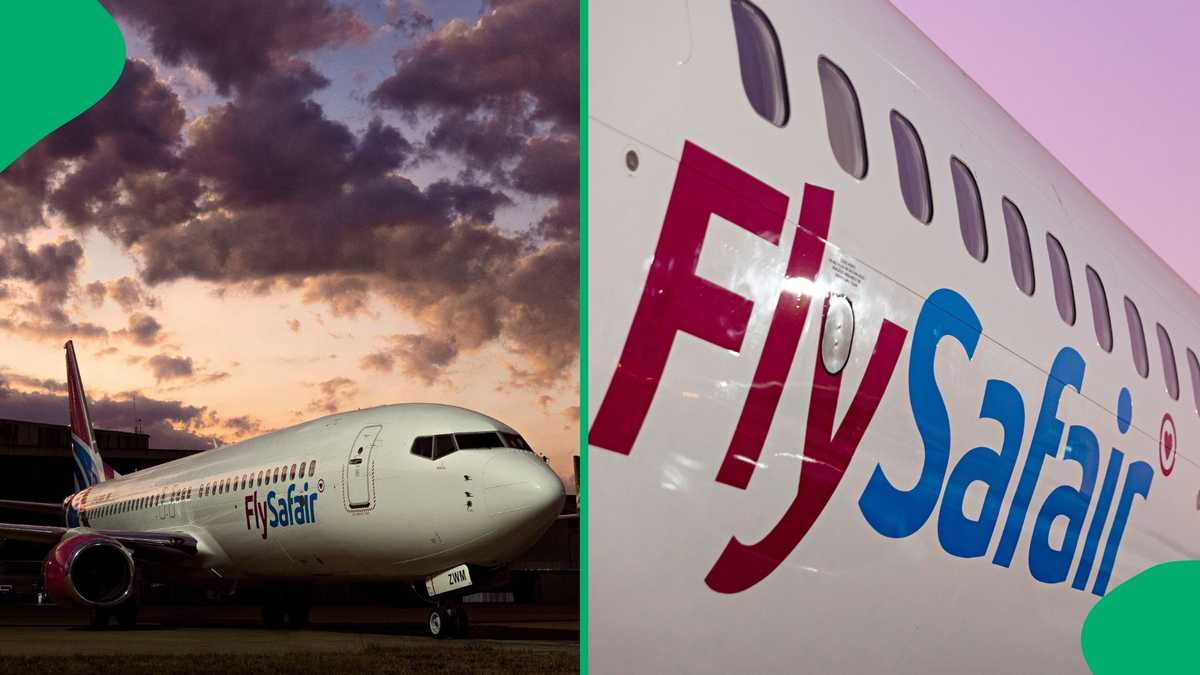- The South Africa’s International Air Services Council (IASC) recently found FlySafair to be non-compliant
- The IASC made the ruling after complaints were laid against the airline’s current ownership structure
- FlySafair reassured customers that their flights would not be affected by the ongoing court case

Source: Original
FlySafair has assured customers that there is no cause for concern about the airline being grounded this festive season.
The airline has been at the centre of news headlines following a statement from South Africa’s International Air Services Council (IASC).
The IASC recently ruled that the airline’s ownership structure does not align with South African legal requirements.
What the IASC ruling found
At the beginning of November, the IASC found that the airline was non-compliant due to its ownership structure.
According to the regulations, foreign entities are limited to a 25% ownership stake in South African airlines.
FlySafair’s main shareholder, based in Ireland, owns a 74.86% stake in the company.

Read also
Big Concerts to beef up security for Chris Brown shows, calls made for performance to be cancelled
The council was then set to introduce sanctions against the airline within 20 working days. The date when the sanctions were set to be announced was 28 November, but FlySafair filed an urgent interdict against the ruling.
The matter is now before the court.
Many passengers feared that the airline would be grounded over the festive period as a result.
FlySafair is one of the country’s biggest airlines and has been in operation for 10 years. The company behind the airline, Safair, has actually been in operation for over 50 years.
How FlySafair is affected
Speaking to Briefly News, Chief Marketing Officer Kirby Gordon provided an update on the matter and how it affects the airline’s business operations.
Gordon stated that because the matter is with the International Air Services Council, potential sanctions could only be applied to FlySafair’s international flights.
“These routes include Johannesburg to Mauritius, Victoria Falls, Harare, and Zanzibar as well as Cape Town to Windhoek,” he said.
He added that they were awaiting further instructions from the courts and the parties involved at this stage.
“To the best of our understanding, with the holidays coming up and the courts closing, this is very likely to push into the new year,” he said.
Are domestic flights affected?
Gordon added that while the current matter only affects international flights, a similar complaint was raised by Lift with the Domestic Council.
“This would/could have an impact on FlySafair’s domestic operations, but this process is very far behind the international council issues.”
He explained that the international matter has been in play for several months already, while the domestic council have only met for a few meetings to deal with the other complaint. The international and domestic councils are independent, so each matter will be investigated separately.

Read also
Standard Bank Customers Furious After Latest Technical Issue, Complain About Recurring Glitches
“At this stage, we do not anticipate any cause for concern, certainly not on domestic flights, but it is very unlikely on international flights,” Gordon added.
Numerous attempts have been made to obtain comment from the Department of Transport, which oversees the IASC, but none were received at the time of publishing.
FlySafair’s ownership questioned by rivals
Briefly News previously reported that popular airline FlySafair found itself in legal trouble over its current ownership structure.
It came after rival airlines complained about the airline’s ownership structure, which led to the IASC declaring it non-compliant.
South Africans took to social media to defend the airline, saying that its ownership structure makes it work well.
Source: Briefly News

